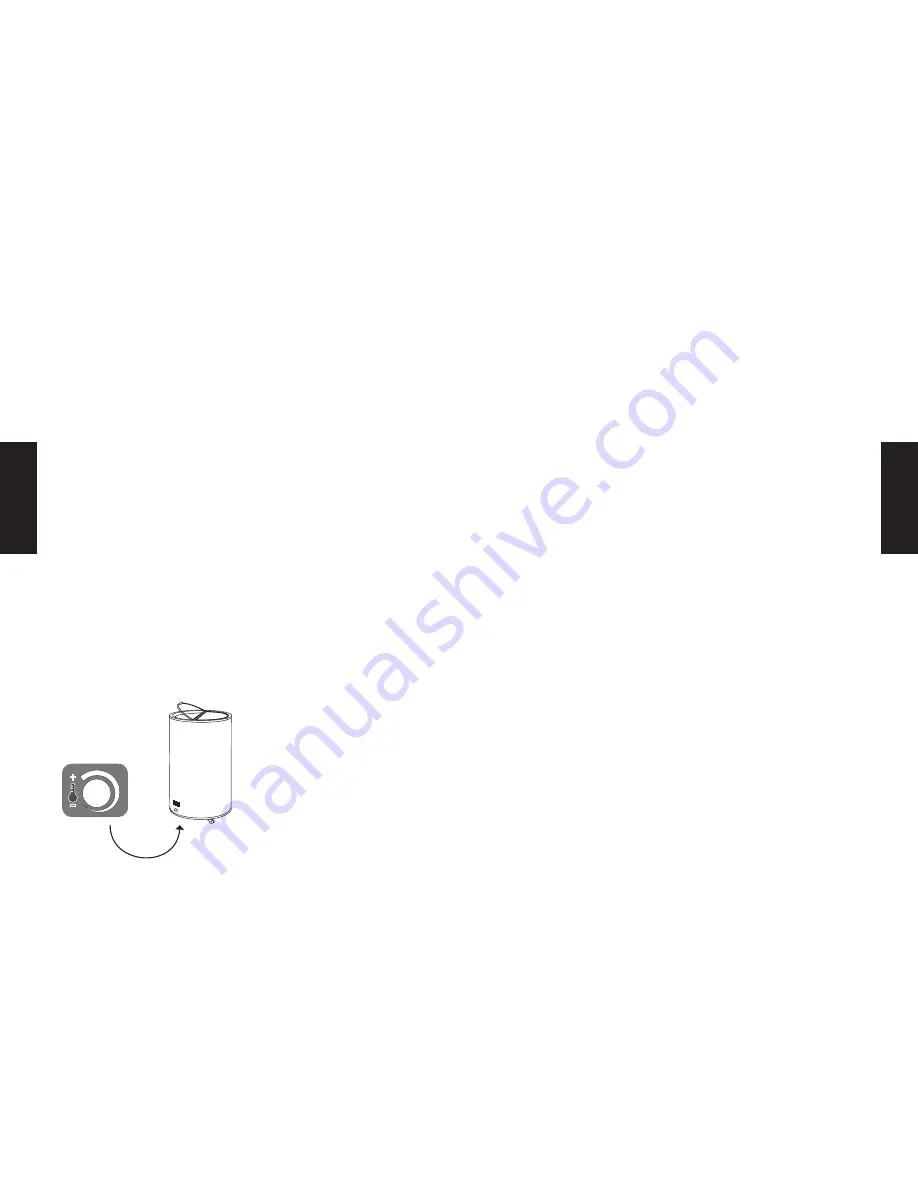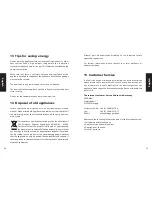
32
33
Eng
li
sh
Eng
lish
7.2 connecting the appliance to the mains supply
IMPoRTAnT
It is imperative that the appliance be earthed according to
the directions. For this purpose the plug of the connecting
cable is provided with the appropriate contact.
IMPoRTAnT
Call a specialist electrician if the plug does not fit into the
socket. Do not try to force the plug into the socket.
IMPoRTAnT
If you disconnect the appliance from the mains supply, or
if a power cut occurs: wait for 5 minutes before you restart
the appliance.
8 operation
8.1 Switching the appliance on
In order to switch on the appliance push the mains plug into the socket.
8.2 Setting the temperature
The temperature can be set at from -26°C to –10°C. It is set by the knob.
+
–
noTE
Please note that the temperature will change depending on the
ambient temperature (installation site), the frequency of opening
the door and the fittings.
IMPoRTAnT
high room temperatures (such as e.g. on hot summer days)
and a cold temperature setting can lead to continuous
refrigerator operation. The reason for this is that the
compressor has to run continuously in order to maintain the
low temperature in the appliance. The appliance is not able
to defrost automatically because this is only possible when
the compressor is not running (see the defrosting section).
Therefore, a thick layer of frost or ice may form on the rear
interior wall.
8.3 noises during operation
normal noises
• Humming – the noise is caused by the compressor during operation.
It is loud when it switches on or off.
• Liquid noise – caused by the refrigerant circulating in the unit.
• Clicking noises – the temperature regulator switches the compressor
on or off.
9 Defrosting / Switching off
During the cooling and defrosting phases a thin layer of ice or drops
of water form on the inner wall. The condensation water flows into
a collecting tray and evaporates. Please ensure that the outflow
channel is not blocked. It can be cleaned carefully with a pipe cleaner.
Your refrigerator does have automatic defrosting, but if a thicker
layer of ice forms in-side the appliance – if you occasionally defrost it
by hand – proceed as described under point 10.1. Optionally, in order
to accelerate defrosting you can place a bowl with hot water in the
appliance or use a hairdryer.





































